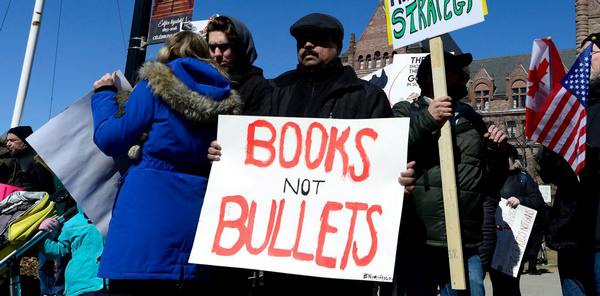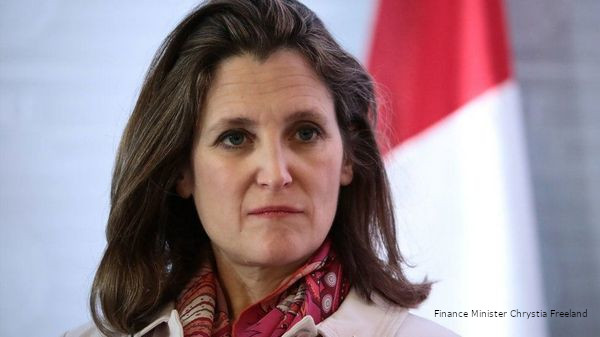News from Canada: it’s the same the whole world over

To put it mildly youth violence in Toronto is on the increase. Violent incidents in schools have spiked beyond pre-pandemic levels, with shootings and stabbings occurring in broad daylight on school grounds. Nor is it just in schools; in the last year a 16-year-old was stabbed to death outside a subway station; a 15-year-old was injured in a drive-by shooting; another 15-year-old shot inside his home, with an 18-year-old charged with second degree murder. A 1,766 page report on youth violence was published by the provincial government in 2008, but little has been done to implement its recommendations. In 2014 Toronto city council voted to develop a ‘Youth Equity Strategy’, but didn’t follow up on it because it was underfunded. If these plans had been acted on it would still be a case of trying to solve the problem within capitalism. In other words, using a band-aid when a major operation is called for.
*****
The unemployment situation in Canada remains pretty much the same every month. In October 18,000 new jobs were added to the economy, but the unemployment rate went up from 5.5 percent to 5.7 percent. This was due to the population growth as more immigrants, many of them refugees, came here. Stats-Canada said one third of Canadians reported that they found it very difficult to make ends meet when it came to transportation, housing, food, clothing and other necessary expenses. So it never gets better and still most folk believe capitalism is the best of all economic systems.
*****
The auto-workers union Unifor has completed a deal for their members that secured wage gains for production workers which will be 28 percent at the end of the contract. Other improvements include better pensions, job security, bonus pay and more vacation days. Sounds good doesn’t it? But you know what, many of the beneficiaries of these gains are pissed-off the union didn’t do more for them. An example are the workers at Stellantis who voted 54 percent to accept the new contract. According to Larry Savage, Brock University Labour Study Professor, ‘Workers aren’t content to tread water in the context of a cost-of-living crisis; they expect their unions to do more for them at the bargaining table’. The auto-workers have been badly treated over the last 15 years and they know the gains the union made will soon be wiped out. As long as capitalism lasts the working class will struggle.
*****
It’s a surprising fact that 80 percent of the world’s wastewater is discharged into waterways untreated. Some folks may think it would be different in an industrialized country like Canada, but it’s only a matter of degree. The average Canadian household uses 630 litres a day, about a third of it goes down the drain. One doesn’t hear about it until something goes wrong, which happened in Hamilton, Ontario in January, when it was found it had been leaking sewage into Lake Ontario for 26 years. In Nova Scotia, 25 percent of the wastewater goes untreated and in Newfoundland and Labrador its 38 percent. The reason is the treatment systems are expensive to build and maintain. In Vancouver the new facility under construction may cost 5 times more than its initial $700 million budget. That’s so typical of capitalism, there has to be a price tag on everything.
*****
A recent news program informed us that the use of food banks in Toronto has increased 60 percent since Covid and 38 percent more than last year. With the cost of groceries going up, rent hikes and mortgage interest rates increasing some folks have no recourse but to use food banks. Though they’re probably grateful to the food bank they use, nevertheless isn’t it a case of life being so crummy under crapitalism that economic necessity has brought a part of socialism into being? People come in, take what they need and leave without paying. It’ll be better when all society is like that.
Food banks in Canada are seeing a surge of international students using them, in fact the manager of one of them in Brampton, Ontario had so many student users he banned them. The number of study permits in Canada has tripled in the past decade, from 300,000 in 2013 to 900,000 now. Through spending and tuition they contribute $22 billion to the economy. Many work 40 hours a week to pay tuition, live, and have to work 2 and sometimes 3 jobs to stay afloat. This fall, tuition fees are, on average, $22,061 for graduate studies and $88,081 for undergrads. With declining government funding, post-secondary educational institutions have turned to international students to bring in the bucks. Though nearly all of them work, it’s at low paid jobs like retail, warehousing, factories and fast-food joints. With rents the way they are it’s no wonder they go to food banks. So the lack-of-moral to the story is that the international students are learning what life under capitalism, especially in Canada, is really like.
*****
On November 3, federal Environment Minister, Steve Guillbeault, signed a deal with the B.C. government and Indigenous leaders to protect 30 percent of B.C’s land by 2030. The federal government will invest up to $500 million over the next seven years with B.C. contributing $563 million, which includes $150 million to protect old-growth forests. Though the federal funding has yet to be allocated specifically, nevertheless it will include $104 million to restore the habitats of species at risk. One the one hand it sounds great but on the other we do live under capitalism and therefore must ask what happens after 2030? And what about the rest of this planet? It’s just another band-aid reform and like all reforms they don’t go far enough rooting the problem.
*****
Canada’s rate of inflation fell to 3.1 percent in October down from 3.8 percent in September, but it didn’t feel like it if you’re paying for a place to live. The Consumer Price Index showed the cost of shelter rose by 6.1 percent, up from 6 percent in September. Mortgage interests costs rose 30.5 percent from last year, while rent rose 8.2 percent up from 7.3 percent in September. In the lowest earning 25 percent of Canadians, 91 percent of household income goes to shelter, food, transportation and utilities. In the highest earning quarter, 30 percent of their income goes to those 4 necessities. Any comment is unnecessary.
*****
Saskatchewan’s energy minister Dustin Duncan said, on November 21, that the federal government’s target to have zero-net emissions by 2035 is just not doable in Saskatchewan. He said it would cost the province $40 billion to meet those standards, which they could probably reach by 2050. Ottawa would require all electricity to be from renewable sources such as wind or hydro or to be equipped with carbon capture technology by 2035. The provincial Premier, Scott Moe, said earlier this year that Saskatchewan could not abide by those regulations and might continue to run some of its natural gas and coal facilities till the mid-2040s. What a laugh; capitalism creates a lousy, stinking problem and its main upholders can’t agree how to solve it.

Finance Minister Chrystia Freeland revealed the federal budget on November 21. The Liberal government is promising $15 billion in low-interest loans to support the construction of low-rental homes, with new money starting to flow in 2 years. Freeland said the biggest challenge was to deal with people’s concerns while not running up the government’s bills. This money will be spent over the next 6 years, but $2.5 billion is money being reallocated from other programs, so someone will have to suffer. Almost $8.5 billion will be spent on a host of clean economy subsidies including cash for new electric vehicle battery factories from Stellantis and Northvolt. It will spend $1 billion on non-profit, co-op and public housing initiatives that will build more than 7,000 homes by 2028. The government said they will make changes to the Affordable Housing and Groceries Act, which would strengthen the power of Canada’s Competition Bureau to crack down on companies by combating regulatory pricing and anti-competition mergers. The media reaction is that the government are like the rest of Canada, cash-strapped but doing its best. We’ve all heard that about other governments, but they always find lots of money to finance war. As for the above — we shall see. Miracle making buffoonery!
*****
International students aren’t the only foreign folk having a hard time in Canada. In its issue of November 4 the Toronto Star published an article about foreign agricultural workers in farms across Canada. They work 14 hour days for weeks at a time without a day off or overtime pay. If they complain they are threatened with deportation. Thousands leave their homes every year to work on farms in an industry which contributes 7 percent of Canada’s GDP. Tomoya Obakata, the UN’s expert on present-day forms of slavery, said Canada’s Temporary Foreign Worker Programs: ‘are a breeding ground for modern forms of slavery’. He was deeply disturbed by the accounts of exploitation and abuse that workers told him about on a recent fact-finding mission to Canada. It’s The Grapes of Wrath all over again and goes to prove that for all capitalism’s amazing technology, for the world’s working (wage-slave) class, life doesn’t fundamentally change.
*****
There is a bit of a stink in Canada now that Michael Spavor has accused Michael Kovrig of being a spy for China. These two guys were both imprisoned in China in 2018, days after Canada’s arrest of a Chinese executive, Meng Wanzhou, who was wanted in the U.S. on criminal fraud charges. She reached a plea deal with the U.S., after which the two Michaels were released. Spavor now claims he was fooled by Kovrig into giving up information on North Korea, which was, he thinks, the reason he was arrested. Kovrig said his job was to get China to persuade North Korea to stop developing nuclear weapons technology and was never involved in espionage. Spavor was, at the same time, running a non-governmental organization whose function was to promote business and cultural exchanges with North Korea. It doesn’t matter to the working class of either, or in fact, any country whether these guys were spies or not. Commercial rivalries between different sections of the capitalist class are something the working class have no stake in.
From Socialist Party of Canada’s December Newsletter
Next article: Video Review – German cultural history and socialism ➤
